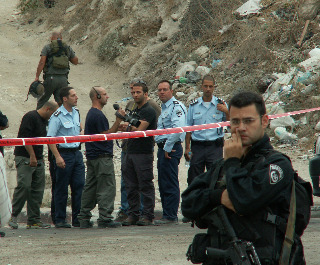In this hot political season, Ben Smith over at Politico has a juicy scoop today entitled "AIPAC disputes Sestak ad." The gist of the piece is this: one of the campaign ads of Rep. Joe Sestak (D-PA) -- designed, it seems, to fend off criticism that he is anti-Israel, the result of a campaign being waged against him by a group called the Emergency Committee for Israel -- asserts that "According to AIPAC, Joe Sestak has a 100% pro-Israel voting record." Smith's talked to soon-to-be-former-AIPAC spokesman Josh Block, who retorts: "Joe Sestak does not have a 100% voting record on Israel issues according to AIPAC. It couldn't be true, we don't rate or endorse candidates."
Now just to be clear, I have no idea how Sestak's record looks to AIPAC, and I don't really care. But during a week when there has been a lot of discussion over what it means to tell the truth in the Israel advocacy world, Josh's words got my attention. Why? Because while AIPAC may not "rate or endorse candidates," it certainly scores their pro-Israel voting (and letter-signing) record. This is well-known on the Hill and among Hill watchers (and is the root of an often-heard question from Hill staff, "do you know if AIPAC is scoring this?").
Now just to be clear, I have no idea how Sestak's record looks to AIPAC, and I don't really care. But during a week when there has been a lot of discussion over what it means to tell the truth in the Israel advocacy world, Josh's words got my attention. Why? Because while AIPAC may not "rate or endorse candidates," it certainly scores their pro-Israel voting (and letter-signing) record. This is well-known on the Hill and among Hill watchers (and is the root of an often-heard question from Hill staff, "do you know if AIPAC is scoring this?").
Continue reading Does AIPAC rate candidates? You decide..

